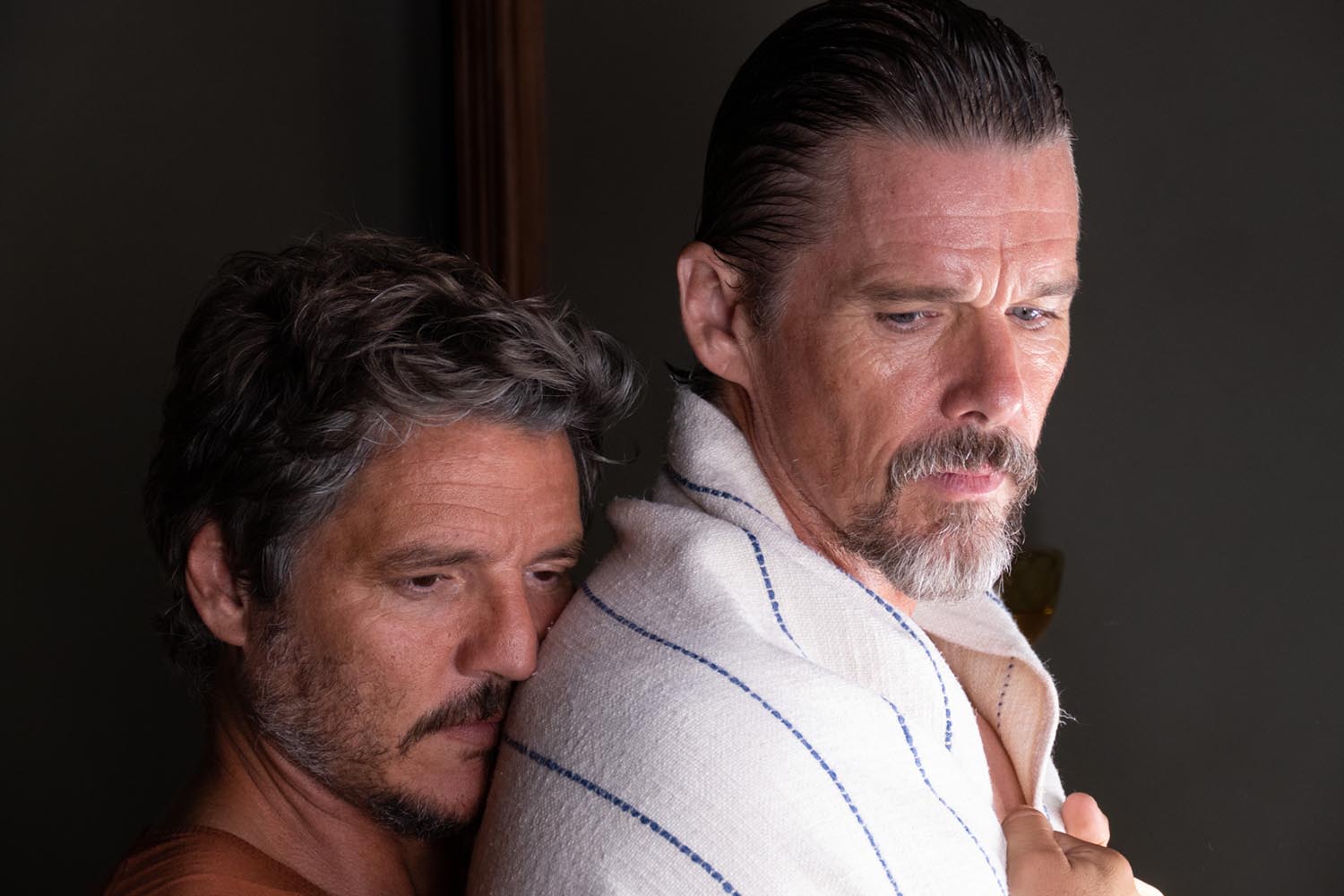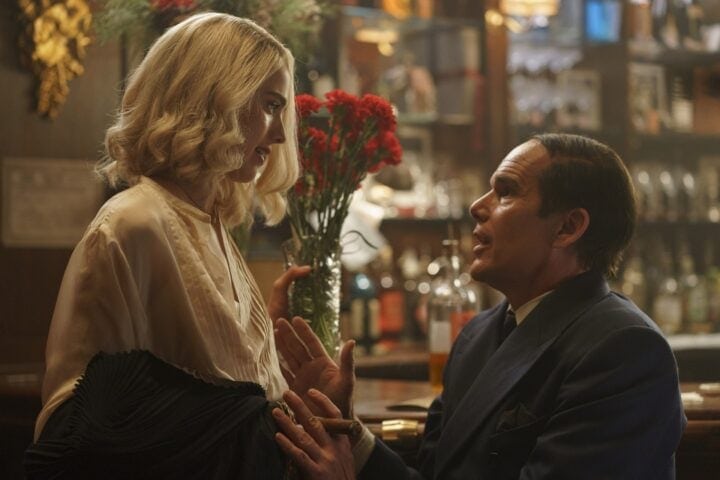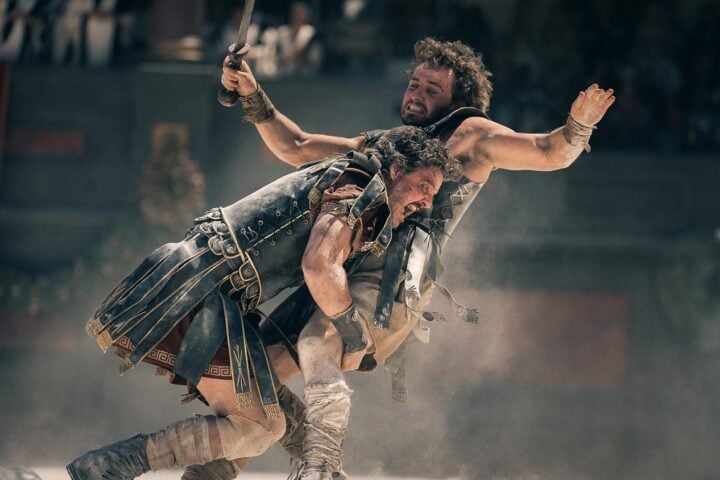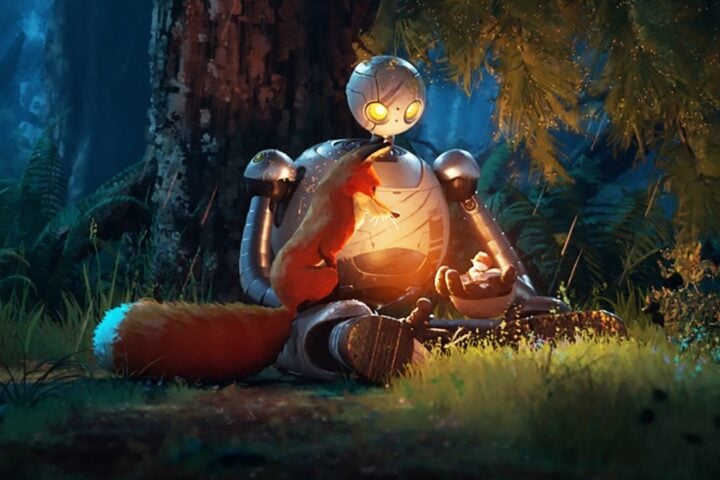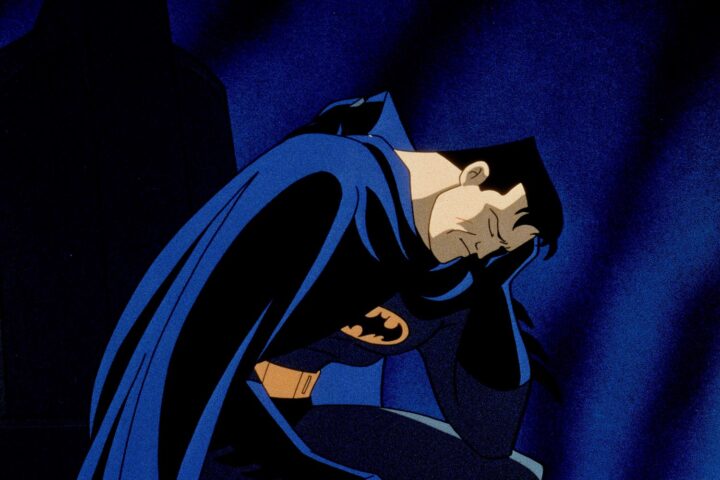Pedro Almodóvar’s canon abounds in nimble, yet edgy, remembrances of things past. In Women on the Verge of a Nervous Breakdown, All About My Mother, and Volver, he paid homage to the language of melodrama while crafting his own version of it. Those and many of his earlier films are pervaded with a humor toward the power that the most basic elements of drama have when pushed to their aesthetic, emotional, and formal limits.
Lately, though, Almodóvar’s work feels less bent on metatexually displaying his technical adroitness than his increasingly softer look at memory. Julieta, Pain and Glory, Parallel Mothers, and even his 2020 short The Human Voice are less fixated on accentuating the theatrical than stewing in nostalgia. And if his new short, Strange Way of Life, is any indication, each subsequent work in his filmography is proving the broth is losing a layer of flavor.
Perhaps the most notable thing about Strange Way of Life is that it represents an “answer” to Brokeback Mountain. (Almodóvar turned down the opportunity to direct the film as he felt he wouldn’t have full freedom on it.) The public can get wrapped up in a master filmmaker bringing to fruition some version of a lost love, or at least lost opportunity. And as both Almodóvar’s short and Ang Lee’s film contain themes of guilt and condition, you get a little bit of a meta-narrative sprinkled among Ethan Hawke and Pedro Pascal’s mugging, yearnful looks.
Silva (Pascal) is riding into town at the same time that his old flame, Sheriff Jake (Hawke), is looking for the killer of his brother, which he suspects was committed by Silva’s son, Joe (George Steane). Silva plays off his arrival like his only objective was to reconnect with Jake, while the sheriff suspects that Silva is there to protect his outlaw son. Nonetheless, a dinner of stew, drinks, and reminders of their mutual affection leads to the old friends skating vaguely across past joys and wounds, never having made contact since they were stablehands in Mexico 25 years ago. And while they brood over the meaning of their meeting, Almodóvar flashes back to their younger selves—with Silva played by José Condessa and Jake by Jason Fernández—giddy and passionate encounter after drinking wine from bullet holes they shot in a barrel.
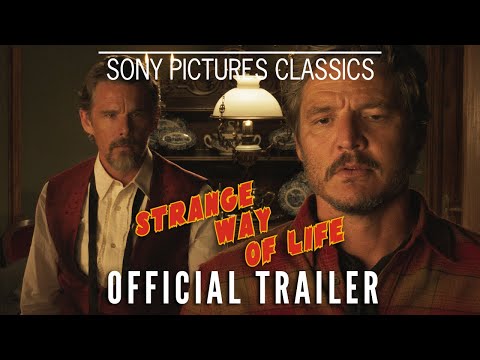
When it’s all over, Strange Way of Life aspires to be like a victory lap for Almodóvar, a chance to rewrite the past while imagining a more tender future as the characters in the film get to live out the somewhat banal domestic fantasy of companionship. But as a wispy whole, it’s more like something that will be blown away like footprints in the sand. Its attractive desert vistas notwithstanding, the short is about as substantial as one would expect from a glorified commercial by a haute couture house. Its meta-narrative is the most interesting thing about it.
Strange Way of Life feels thin at 31 minutes, as well as tame and flat, given that this was Almodóvar’s chance to turn the western inside out in his unique way. Almodóvar’s penchant for eye-catching production design, here done by Antxón Gómez, has often helped him play with the tropes of melodrama, noir, and sex comedy—the sets elaborating upon the director’s goals in exploring how genre is shaped by material space. But this short has no such desire to tinker with how color influences our perception of what a western is or looks like.
Hawke goes more naturalistic and gritty, while Pascal looks effortfully flirty. In the end, both struggle to find a chemistry that’s supposed to exist two-fold: a still hot ember that feels as if it has the power to set their fancy clothes aflame. The film isn’t heightened enough to be camp and not naturalistic enough to be a more serious drama, so it ends up just feeling noncommittal.
The film’s real eros lies in the green eyes of Manu Ríos’s troubadour character, binding the viewer in the spell of his gaze. As he trills his ballad, his look into the camera contains seduction, loss, melancholy, hope. If Almodóvar wanted to make a film that was about the paradoxical pain and pleasure of fighting for queer love, of wanting to remake the past in the process, he could have just kept a camera on Ríos’s face and called it a day. Strange that he didn’t.
If the history of the queer western is built on innuendo and a certain kind of subversion, and Almodóvar’s specialty is deranging genre itself, it’s frustrating to encounter something like Strange Way of Life that doesn’t take advantage of interrogating the literalism of “queering the western” itself and what that ethos means. The western, with its anxieties about masculinity, modernity, and the natural, is as perfect a place to find the danger of desire blister beneath the desert sun. But Strange Way of Life ends up as unremarkable as any clay-colored rock.
Since 2001, we've brought you uncompromising, candid takes on the world of film, music, television, video games, theater, and more. Independently owned and operated publications like Slant have been hit hard in recent years, but we’re committed to keeping our content free and accessible—meaning no paywalls or fees.
If you like what we do, please consider subscribing to our Patreon or making a donation.

